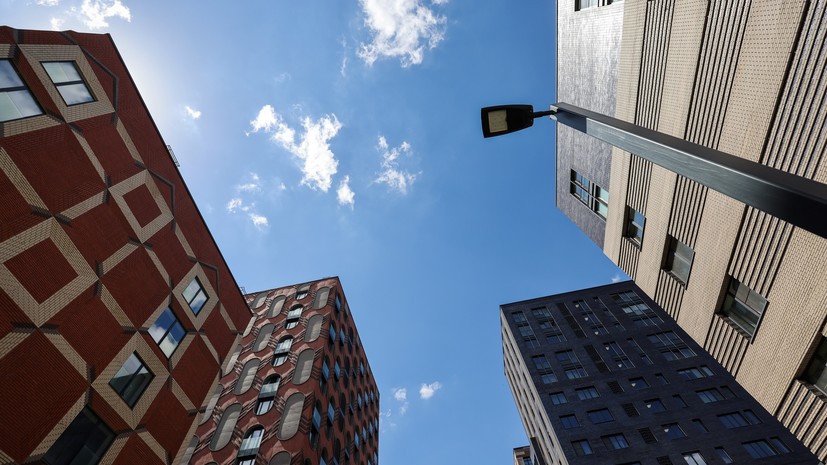The Russian government, on behalf of President Vladimir Putin, extended the issuance of preferential mortgages for another year and a half.
A resolution to this effect was signed by Prime Minister Mikhail Mishustin on Thursday, December 29.
The program was supposed to end on December 31, 2022, but will now run until July 1, 2024.
Meanwhile, the subsidized rate on it will be increased from the current 7 to 8% per annum.
“We will curtail the mechanisms of preferential mortgages… But we will do it smoothly.
What exactly do I mean: we will extend preferential mortgages throughout Russia ... the rate on it will be slightly higher ... At the same time, on the contrary, access to family mortgages will be expanded, which is becoming our main tool, ”Vladimir Putin noted earlier.
Thus, according to the decree of the Cabinet of Ministers signed on Thursday, family mortgages at 6% per annum will receive greater coverage.
Such loans can be issued not only by parents with one or more children born after December 31, 2017, but also by families with at least two children under the age of 18.
As recalled in the Cabinet, you can get a loan under a preferential or family mortgage when buying real estate worth up to 12 million rubles in the Moscow and St. Petersburg agglomerations and up to 6 million rubles in other regions of the country.
In addition, Russians can borrow up to 30 million and 15 million rubles, respectively, but the subsidized rate will only apply to amounts up to 12 million and 6 million.
“For example, if you want to take a loan (under the family mortgage program in the region. -
RT
) in the amount of 10 million rubles for 20 years, then you can get 6 million rubles at a rate of 6%, and another 4 million rubles at a rate on market conditions (today it is about 10.8% per annum. -
RT
)", - explained the company "DOM.RF".
When applying for a preferential and family mortgage, money can be used to purchase finished housing from a developer or an apartment in a facility under construction, to build a private house on your own or under a contract, as well as to purchase a land plot for the construction of summer cottages, cottages or townhouses.
At the same time, a family mortgage also allows residents of the Far Eastern Federal District to buy a secondary property.
It is noteworthy that under both programs, the reduced interest will be valid for the entire term of the loan, and the difference between the market and subsidized rates will be reimbursed by the state to banks.
In turn, the size of the down payment for both preferential and family mortgages must be at least 15% of the cost of housing.
RIA News
© Maxim Blinov
The preferential mortgage program was first launched back in 2020 to support demand for real estate during the pandemic.
According to the experts of the Central Bank, the initiative turned out to be useful, but led to a rapid rise in the cost of new buildings and, as a result, a serious gap in prices in the primary and secondary housing markets.
Against the backdrop of such an overheating of the industry, recently the Central Bank has increasingly begun to make proposals to curtail preferential mortgages.
However, according to the regulator, the process should be gradual, since the abrupt end of the program may be risky for the market, writes TASS.
“The construction industry is addicted to preferential mortgages… We have a feeling that if we stop preferential mortgages now… it will deal a serious blow to the construction industry,” Ruslan Bulatov, deputy head of the Central Bank’s banking regulation and analytics department, said on December 9.
A similar point of view in an interview with RT was expressed by the vice-president of the International Academy of Mortgage and Real Estate, Irina Radchenko.
According to her, the refusal of preferential mortgages from 2023 would lead to a rapid collapse of the real estate bubble, but now this scenario can be avoided.
“In turn, the increase in the preferential rate to 8% is designed to reduce the proportion of customers for whom a mortgage would be a difficult and heavy obligation.
This should reduce the burden on the industry and the Russian budget,” Radchenko explained.
In addition, in 2023 the Central Bank may again raise its key rate, as a result, market interest on housing loans will also rise, experts say.
As a result, the issuance of preferential mortgages at 8% will allow the state to save some money, but at the same time it will continue to support demand in the market, analysts are sure.
“In 2022, preferential mortgages have become the main growth driver for the real estate market and the banking sector.
Considering how much many industries depend on construction, it is now necessary to support the demand for housing for the stable development of the country's economy, ”Artyom Deev, head of the analytical department at AMarkets, told RT.
According to experts, the expansion of family mortgage conditions is also intended to stir up the interest of citizens in buying a home.
As a result, developers will have more potential buyers.
“This is the right move.
Indeed, it is better to shift the focus towards such targeted programs than to support demand among speculators who invest in real estate as an investment, which leads to higher prices.
We need to encourage and support those who really need to improve their living conditions,” concluded Irina Radchenko.

